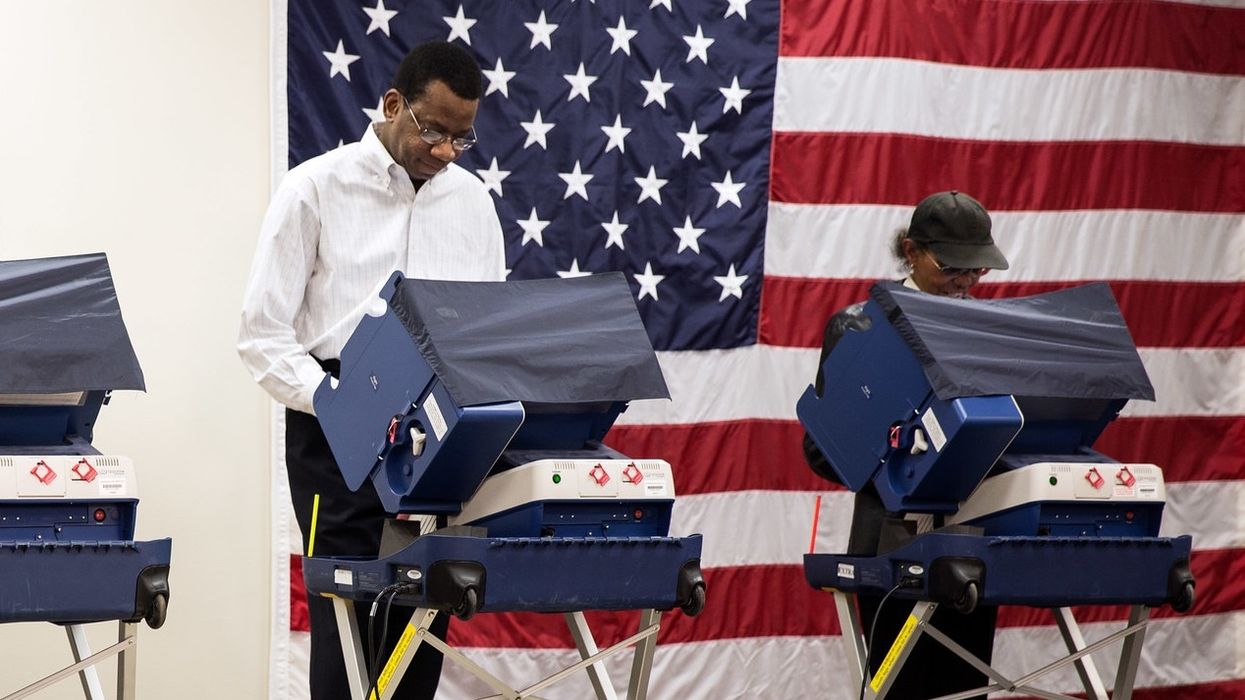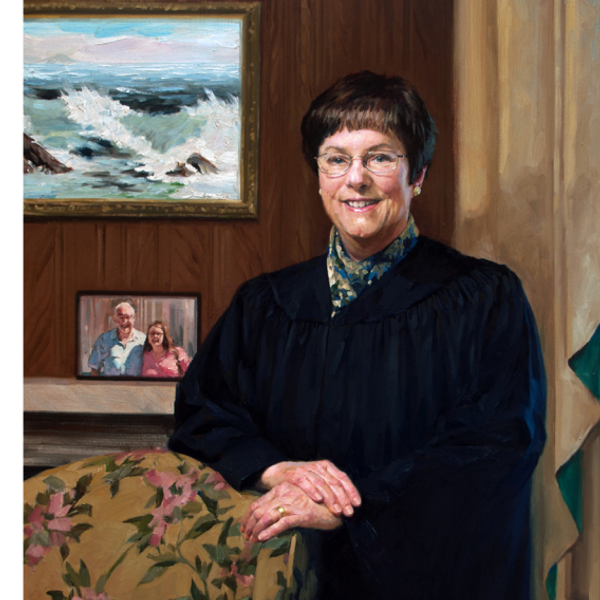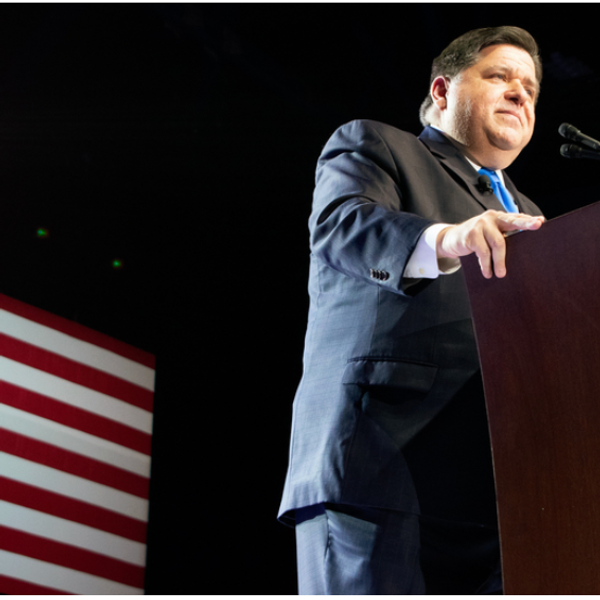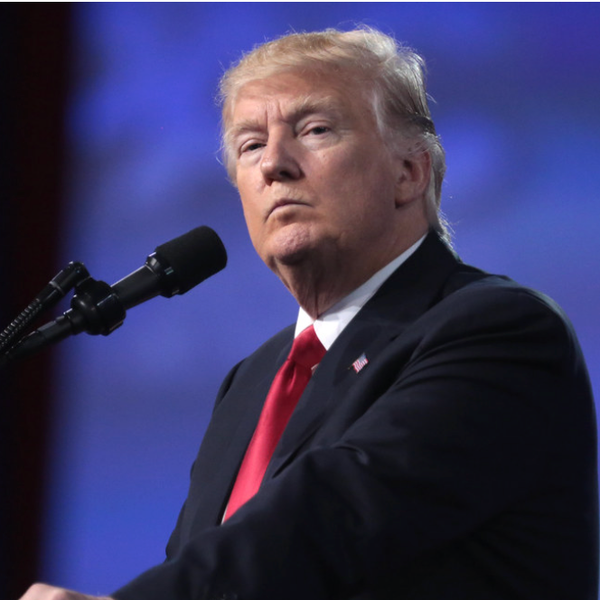Pew Data Disproves Reported Trump Advance Among Minority Voters
The Pew Research Center released polling this week that casts serious doubt on recent surveys showing Donald Trump making significant gains among Black and Latino voters.
The Pew survey suggested majorities of Latino, Black, and Asian voters continue to largely favor the Democratic Party. The results show very little change among Black and Latino Americans since the early 1990s, while white voters remain almost exactly as aligned with the Republican Party as they were in the early ‘90s.
"Not much 'racial realignment' in these Pew numbers," Vanderbilt political science professor John Sides tweeted, attaching a series of Pew graphs tracking party alignment over three decades.
On Latinos specifically, Pew’s 2023 data showing Democrats with a 61 percent to 35 percent edge seemed to counter recent New York Times/Siena polling showing Trump with a 46 percent to 40 percent edge over Biden—6 points above George W. Bush's 40 percent share of the Latino vote in 2004, the high-water mark for Republicans.
Pew puts considerable effort into surveying the U.S. Latino population, and some political analysts consider it the gold standard on Latino polling. The differences in outcomes between the Pew and Times polls are due to a number of variables, including the fact that Pew asked about party affiliation while the Times polled Trump-Biden support.
But another factor—and a potential cautionary tale about polling Latinos—might be differences in the way the polls were conducted. In the fine print of its graph, Pew explains why its data for Latino voters only dates back to the mid-aughts while information for its other three demographic graphs date back to the 1990s.
"Data for Hispanic voters shown only for years with interviews in English and Spanish," the text reads. In other words, the polling organization didn't view polling of Latinos conducted in English as sufficiently representative, even if the sample sizes were technically large enough.
The Times poll conducted just three percent of its interviews of self-identified Latino voters in Spanish—a fact that UCLA political science professor, Democratic pollster, and Biden campaign adviser Matt Barreto currently highlights in his pinned tweet.
"Let's look at their brilliant Latino methodology: 97 percent English," Barreto tweeted incredulously last month, when the poll was released. Barreto added emphatically that Trump's 6-point advantage in the Times survey "does not match ANY actual bilingual large-n polling of Latinos. ZERO CHANCE. Are people frustrated? Yes. Is Trump +6. ZERO CHANCE."
Even the Times piece detailing the poll's findings among Latino voters warned, "For a subgroup that size, the margin of error is 10 percentage points."
But if Barreto's tweet sounds urgent, it's because Biden's share of Latino voters matters. Latinos, who now account for roughly 15 percent of eligible voters, can be difference-makers in 2024. That is particularly true in a swing state like Arizona, where Latinos are expected to account for around one-quarter of voters this year.
There's good reason to question polling suggesting such a dramatic shift among a group of voters who present unique challenges to pollsters.
As Republican political consultant and Lincoln Project co-founder Mike Madrid tweeted, Pew's "numbers are much more in line with where Hispanics will likely end up. Lower for GOP than most current polls but high historically."
Trump's big purge of old-school and more moderate Republicans, such as supporters of his primary rival Nikki Haley, has also put more pressure on him to overperform among groups that typically haven't favored Republicans—including Latinos.
The smartest reporting out there on the topic of Trump's potential gains with minority voters this cycle comes from CNN analyst and The Atlantic senior editor Ronald Brownstein, who has been at the forefront of tracking demographic trends since coining the term "the blue wall" in 2009.
As Brownstein points out, one underreported trend in this cycle's polling is Biden's relative strength among white voters. In most state and national polls, Biden is "matching or even exceeding" his winning 2020 share of the white vote.
So with Biden and Trump running roughly even in national polling now, Biden's continued strength with white voters puts the onus on Trump to win over a historically high share of voting groups that don't typically lean Republican.
As Brownstein tweeted, "Trump's gains w/Black & Hispanic voters have drawn justified attn. But w/little notice, Biden is matching or beating his 2020 # w/Whites in most ntl & state polls. That means to win,Trump may need to hold more minority votes than any GOP nominee in 60+ yrs."
That's going to be a tall order, particularly among Latinos, given the full-court press the Biden campaign rolled out last week with its new targeted outreach strategy, "Latinos con Biden-Harris."
The conventional wisdom over the past few months has been that Biden is in trouble because he's bleeding support among Latinos (and potentially Black voters, too).
But with current polling showing Biden and Trump relatively evenly matched at this stage of the contest, it's entirely plausible for the Biden campaign to woo back some voters who are more naturally predisposed to voting for Democrats, as the Pew polling suggested.
As Democratic strategist Joe Trippi recently explained on his podcast, “That Trippi Show,” "We don't have to gain back 20 points with Blacks, we don't have to gain back 20 points with Latinos, or with young people. If we're in a dead heat when we've lost 20 points with all those folks across the board, you get 2 points, 3 points, 4 points of them back, and Trump is dead."
It's another case of: We'd much rather be us than them.
Reprinted with permission from Daily Kos.












